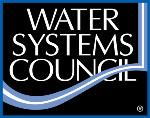
Drinking Water Infrastructure Act of 2020

The COVID-19 crisis has not halted WSC’s work on federal legislation dealing with funding for water infrastructure projects. WSC Government Affairs Liaison Jeff More has been working closely with the bipartisan leadership of the Senate Environment & Public Works (EPW) Committee on the development of drinking water infrastructure funding legislation that not only increases federal funding, but also focuses federal resources on rural drinking water challenges.
Last week, the Senate EPW Committee released draft drinking water funding legislation – The Drinking Water Infrastructure Act – that contains many of WSC’s rural drinking water funding priorities.
Highlights of the Drinking Water Infrastructure Act of 2020:
- The total cost of the draft Drinking Water Infrastructure Act of 2020 is an estimated $2.5 billion in federal authorizations.
- This draft bill reauthorizes the Safe Drinking Water Act emergency fund to provide resources and technical assistance to communities facing drinking water emergencies that present a substantial danger to health.
- The draft bill increases funding for the EPA’s Assistance for Small and Disadvantaged Communities Grant Program.
- It also codifies appropriations language that requires a state to use 20 percent of the Drinking Water State Revolving Loan Funds they receive to provide grants, no interest loans, forgiveness of loan principal or to buy, refinance or restructure debt.
- The draft bill also makes it simpler for schools and childcare programs to test for lead in their drinking water by empowering the local water utility to do testing.
- This draft bill authorizes $300 million in grants to assist in the remediation of emerging contaminants, with a focus on perfluoroalkyl and polyfluoroalkyl substances.
- The draft bill provides robust funding for grant programs to help water utilities invest in and deploy new and emerging, but proven, technology essential to improve water and energy efficiency, reduce emissions, and expanding ratepayer affordability. It also authorizes $15 million annually for the EPA’s Water Infrastructure Resiliency and Sustainability Grant Programs.
The Drinking Water Infrastructure Act will likely be the basis for drinking water funding measures that will ultimately end up in an evolving COVID-19 recovery/stimulus package.
 Water Systems Council
Water Systems Council